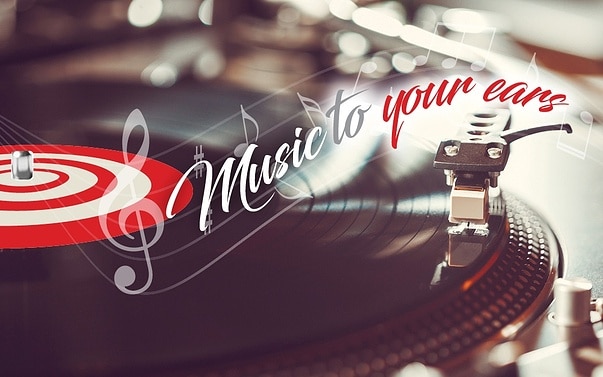Would Christmas be the same for you without the smooth croon of Crosby and Sinatra around the BBQ? Or carols along the most decorative boulevards of your neighbourhood? Or perhaps you are more likely to wince every time ‘All I Want for Christmas Is You’ comes on for the third time only to remind you how long you’ve been trawling David Jones for giftable socks. No matter which camp you belong to the emotional impact of music seems all the more potent around Christmas time.
We know we find music pleasurable, but the science behind music’s effect on people reveals more long-term benefits to health and wellbeing than you may think. Advances in neuroscience can now reveal that, when examining the brain of a subject exposed to music, you are able to see multiple areas light up immediately. This stimulation in turn releases hits of dopamine, engaging the same cerebral ‘reward system’ that you would experience with a delicious meal, or upon receiving some terrific news.
Music to put you mind at ease
Often this positive experience when listening to music comes via a sense of ease and relaxation, which has further beneficial effects on the human body. Several recent studies have found music to be effective at moderating your heart rate and blood pressurei, the two biggest indicators of stress, while another study has found it may improve your sleeping patternsii.
But if you are organising your bedtime playlist, be wise with your selections. Just as you can be lullabied by dulcet tones, your fight-or-flight mechanisms can kick into overdrive in response to the ominous rumble of bass or the stomach-churning screech of strings in horror films. Why? Well these dramatics shifts in tone, known as ‘non-linear’ sounds, emulate the sounds of animals in duress – triggering biological responses of panic and pumping adrenaline into your bloodstream.
…and to put your mind to work
Just as music can help you wind down, the right selections can also improve your attention and focus. This stems from the days where elevator music – muzak – dominated office floors in the 50’s and 60’s, with crescendos, tempo shifts and blocks of silence designed to stimulate productivity. Fortunately, science can now offer some insights into which kinds of music, and which properties in music, can best aid your focus.
In a nutshell, the best playlist would have the following qualities: it would be up-tempo, sit at a moderate volume (both too loud and too soft can prove distracting), and, most importantly, it would be lyric-less.
Sounds of nature have also been found to have a positive effect. And not just on employee output; the ambling randomness of things like tranquil streams, birdsongs and the sound of rain have also been found to improve overall worker satisfaction.iii
Keep in mind though, these studies typically concern the connection between music and the performance of repetitive tasks. So, if you’re attempting to crack nuclear fusion you might be better off with silence (and the odd stray colleague’s recap of the Bachelor) as your soundtrack.
You may have been burned by some failed attempts to couple music with work in the past, but it’s not necessarily a round peg in the square hole. Cater your song curation to context and you may just feel the stress melting away, or your state of flow making the hours disappear.
And remember, if listening to music works for you, it might work for your loved ones come Christmas time. They’ll certainly appreciate it more than socks.
i Nilsson U. ‘The effect of music intervention in stress response to cardiac surgery in a randomized clinical trial ‘https://www.ncbi.nlm.nih.gov/pubmed/19486788
ii Jespersen KV, Koenig J, Jennum P, Vuusy P, ‘Music for Insomnia in adults’ https://www.ncbi.nlm.nih.gov/pubmed/26270746
iii De Loach AG. ‘Tuning the cognitive environment: Sound masking with “natural sounds in open-plan offices”’ http://asa.scitation.org/doi/abs/10.1121/1.4920363







































































